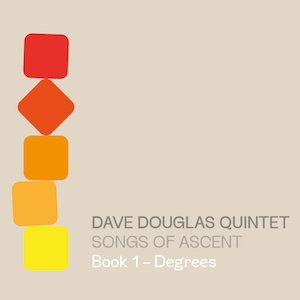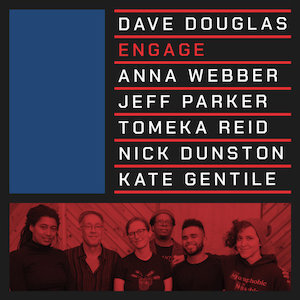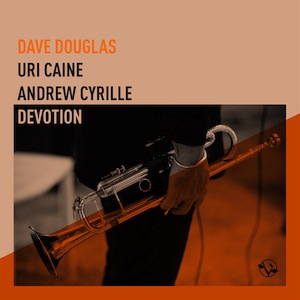Label: Greenleaf Records, 2024
Personnel - Dave Douglas: trumpet; James Brandon Lewis: tenor saxophone; Rafiq Bhatia: guitar; Ian Chang: drums.
Renowned trumpeter and composer Dave Douglas has been a stalwart presence in the modern jazz scene for several decades. For this date, comprising new original material and four Billy Strayhorn classics, he’s joined by open-minded associates such as saxophonist James Brandon Lewis (on half the tracks), guitarist Rafiq Bhatia (making his fourth appearance in Douglas’ projects), and drummer Ian Chang. The latter two, members of the experimental/post-rock trio Son Lux, anchor the the nimble soloing of the two-horn frontline, showcasing their strong rapport. Together, they create a strangely beautiful symmetry with Gifts, a celebration of the blessings of life and music.
The title track traverses an atmospheric landscape, accented by metallic percussion and ethereal, powdery electronics. The trumpet combines prodigiously with the guitar in a theme that leads to a slow modal procession enriched with expressive idiosyncrasies. Lewis and Douglas blow up a storm in their free-flowing improvisations. While the saxophonist delivers a soulful performance, the trumpeter explores a rich post-bop dialect over Bhatia’s sumptuous chordal work. Later on, the guitarist adds a drone-sustained backdrop for himself, dropping a magical noir-inspired improvisation.
Also among Douglas’ standout compositions is “Seven Years Ago”, a previously unrecorded piece from 2017, providing a compelling narrative with a plodding rhythm on the verge of expansion, conciliatory unison lines, and improvisatory fluency. “Small Bar” is another tensely dynamic ear-catcher, a trio effort that prominently features Bhatia. He sets the tone with harmonics, breezy delay effects, and a modernistic world music flavor that seamlessly transitions into distorted walls of sound reminiscent of prog-rock. Here, he even tosses bass lines, creating a walking pavement for Douglas’ philosophical musings.
If “Kind of Teal” evinces strong blues and rock n’ roll connotations, eventually opening windows to soft-rock-meets-jazz views, then Strayhorn’s “Take the A Train”, with a curiously altered main melody, takes the rock power further with originality, joy, and awesome interplay. Also penned by Strayhorn, “Rain Check” emits a positive vibe, “Blood Count” shifts from intelligent balladry to moderately ominous fusion with Bhatia soloing over Chang’s agitated drumming, and “Day Dream” offers bustling trumpet-over-drums moments.
Gifts offers a diverse array of moods and textures across its tracks to keep you alert and engaged throughout. This formidable trio, occasionally expanding to a quartet, is undoubtedly deserving your attention.
Favorite Tracks:
01 - Gifts ► 07 - Seven Years Ago ► 08 - Small Bar
















